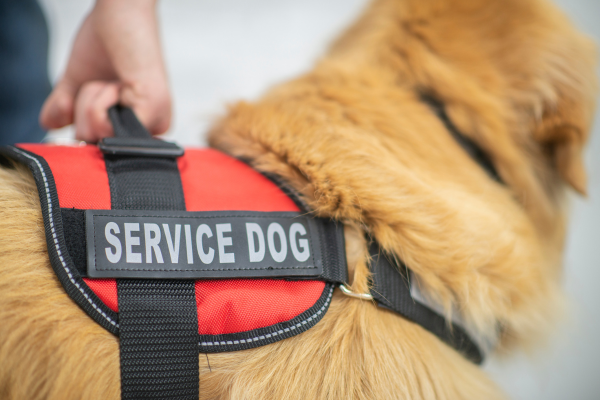Protecting, Training, and Advocating for Your Service Dog
Service dogs provide invaluable assistance to individuals with disabilities, but their well-being and effectiveness depend on various factors. In this third segment of our series on qualifying for a service dog, we delve into the crucial aspects of protecting your dog, the responsibility and challenge of training, and addressing skepticism about these incredible canine companions.
Protecting Your Service Dog
Protecting your service dog is paramount, and it starts with ensuring their safety from physical harm. While service dogs are trained to behave, it’s essential to be cautious around other dogs and people. All dogs, except those retrieving items for their handlers, should be on leashes when outside their homes to prevent potential conflicts. Stray or abandoned dogs can pose dangers, and carrying self-defense tools like tasers might be necessary.
It’s also critical to consider protection from extreme weather conditions. In hot weather, protect their paws with dog shoes and consider providing ear protection in noisy environments, such as concerts. Consider getting your dog boots (make sure they fit very well!) and even a coat in the winter to protect them from freezing temperatures and ice. Be mindful of their well-being in all circumstances—just as you depend on them, they depend on you for help in these scenarios.
Service Dog Training Challenges & Considerations
Training your own service dog can be a rewarding but challenging journey. Not all dogs have what it takes to become service dogs, and approximately two out of every three dogs wash out during the training process. The key is to stay persistent and dedicated.
- Start early. Good breeding and early training set the foundation for a successful service dog. If you’re unable to train your own dog, ensure your dog receives appropriate training from professional trainers or specialized breeders like Stargazer Kennels, who helped me find and train my service dog Sully. They opened my eyes to an informed way of training that starts when the dogs are puppies.
- Certification for training is timely but worthwhile. Obtaining service dog certification can take time, often up to two years of rigorous training. This includes passing public access training tests. The journey is challenging but rewarding, and if you like it, may open up doors in the future for training other service animals.
- Regardless of training, take time to build a bond with your service dog. Bonding with a service dog you didn’t train from puppyhood is a different challenge but equally worthwhile. The key is to build trust through working together, playing, rewarding positive behavior and meeting each other’s needs. It’s a unique one-on-one relationship that develops over time. Check out this article from K9s for Warriors on this subject.
Addressing Skepticism Surrounding Service Dogs
When it comes to service animals, skepticism is inevitable, but you are not powerless in affecting change. There are many ways to address doubters and spread awareness about the vital role these animals play in our lives.
- Educate. Not everyone understands the purpose of service animals, and some people may even openly express doubt in their legitimacy. Instead of worrying about the opinions of others, focus on educating them. The saying goes, “If you can’t bite ’em, educate ’em!” Ignorance can be dispelled through knowledge.
- Spread awareness. Take every opportunity to spread awareness about service dogs and their importance. By sharing your experiences and knowledge, you contribute to a more informed and accepting society.
- Inspire future trainers. Your advocacy and leadership may inspire others to consider careers in service dog training. More service dogs mean a world with more peace and equality, where individuals with disabilities can lead fulfilling lives with the support they need.
- Encourage Self-Training: Encourage those who can to train their own service dogs. It’s an empowering journey that fosters independence and strengthens the service dog community.
In conclusion, protecting, training, and advocating for service dogs is vital to protect these essential members of our society. These remarkable animals empower individuals with disabilities to live with greater independence, and by spreading awareness and knowledge, we can create a more inclusive and understanding world.


